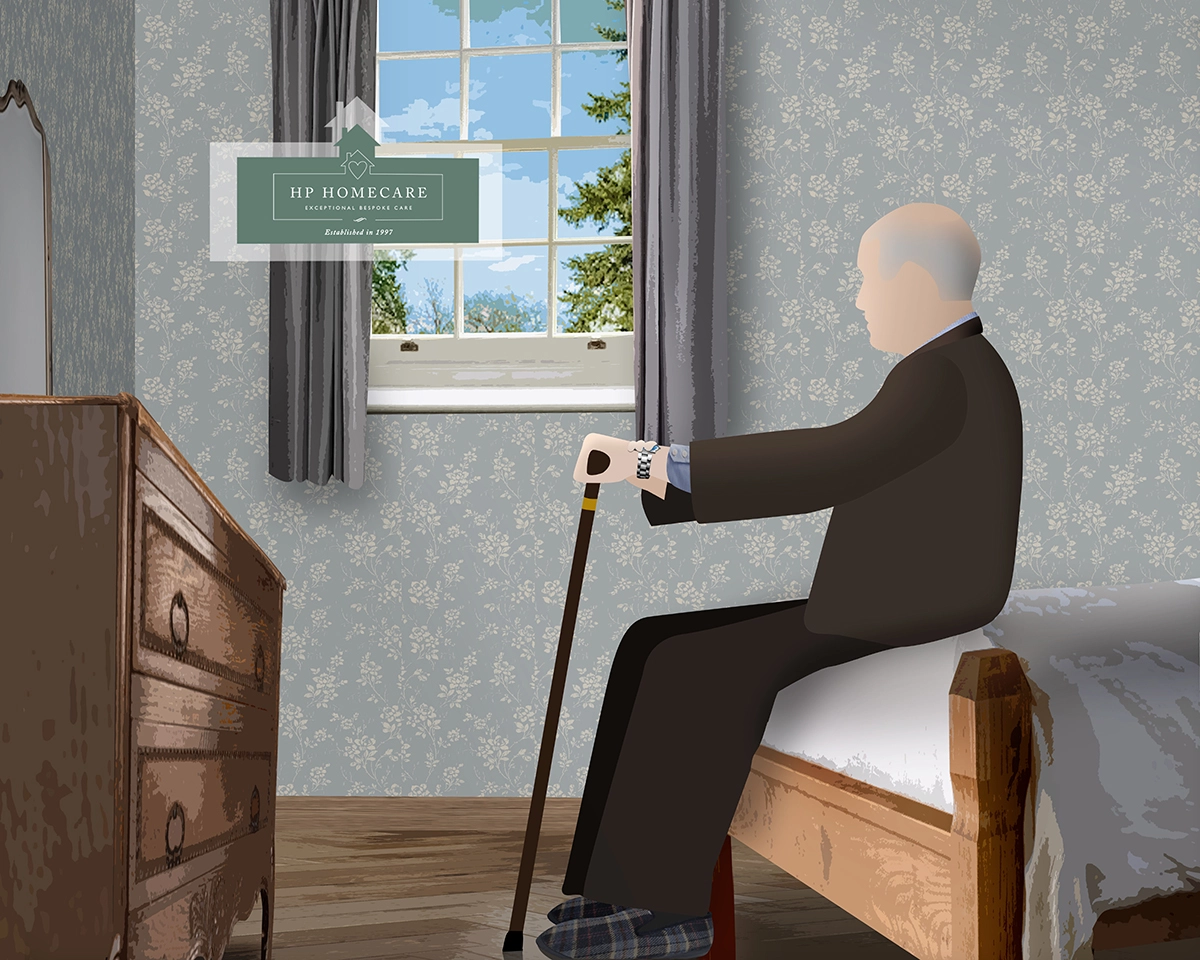
Loneliness in Older Age
- Published on dd
- Authors

- Author
- HP Homecare
Head of HP Homecare, Michele Jogee (RN), is expressing her thoughts on loneliness in older age.
“Having spent my career within healthcare, I have observed patients/clients recover from acute conditions, as well as those who maintain a quality-of-life with chronic disease.
However, one of the greatest causes for decline that I have witnessed in patients has been due to loneliness in older age.
The demographics in our society demonstrate that, due to advances in medical research and modern medicine, people are living longer. Housing options for older people vary from residential or nursing homes, where the older adult requires 24-hour care, to a more independent style of living in sheltered or assisted living developments.
All of the above housing options have positives, and can help older people living with physical disabilities or frailty to experience less loneliness.
Alas, there is an increasing number of older people who are choosing to remain living within their own dwelling and would prefer, with the necessary adaptations, to end their lives ‘at home’.
‘Home is where the heart is’, and many older people take comfort from being surrounded by memories of their family and friends. Older people recover faster from illnesses when they leave hospital and return to the comfort and safety of their own home; a place where their surroundings are familiar, and they can regain confidence with mobilisation. Many older people regain an appetite when they leave the hospital and return home. That said, we know that solitary eating in older age can cause a of loss of appetite. Alongside this, a lack of mobility can cause dehydration and incontinence. This, in turn, can lead to a decline in the physical health of the older person.
This is where homecare truly shines. Bringing care and support into one’s own home has proved to be positive for the physical and emotional well-being of older people. Following thorough assessment of the individual and their home environment, appropriate and tailored care packages can be produced, to ensure that needs will be met - be it medical support or companionship - and risk will be minimised. Personalised care plans are produced, with families receiving an explanation of how the care plan will work, to prevent the experience from feeling too daunting. Matching the care worker/nurse with the older person in terms of interests and personality can lead to great success and longevity for the elder.”
